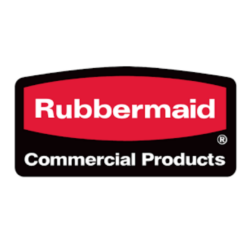
Preparing for England’s new waste rules and how to make the most of the opportunity
There are just a few months to go until England’s “Simpler Recycling” legislation comes into force, affecting how businesses will be required to separate their waste for recycling. From 31st March 2025, those with 10 or more full-time employees will need to separate dry mixed recyclables and food waste from their general waste, prior to collection from their premises by their waste contractor.
With the new rules mandating the separation of food waste, the hospitality and food service sector is going to be one of the most affected by the changes. Two thirds in the industry say they do not currently recycle food waste1 and 920,000 tonnes of food is wasted by hospitality and food service outlets each year2, meaning there are substantial changes to make ahead of the deadline.
In our recent survey of 250 hospitality leaders, 93% expressed concerns about the impact of the legislation on their business1. But with efficient multi-stream recycling actually bringing business benefits, how can you see the new legislation as an opportunity?
What are the business benefits of better recycling?
Better recycling can help businesses save money on waste management because recycling waste is cheaper than sending it to landfill. And with landfill taxes set to rise by 20% in April 20253, recycling more waste is only going to become more beneficial in the future. Implementing an efficient multi-stream recycling system into a typical 200-bed hotel, for example, could typically see a 25% reduction of waste management costs and a 20% improvement in recycling rates4.
Improving your recycling rate gives your sustainability credentials a boost, and with 90% of consumers looking for sustainable options when travelling5, being able to track and report tangible results means you can clearly communicate your improvements to customers.
Top tips for getting recycling right
To make the most of the opportunity the new legislation brings, it’s important for businesses to get recycling right.
- 1
Put visibility on the menu
Reduce cross-contamination and boost recycling efficiency by making it as easy as possible for your customers and employees. Use clear and colour-coded signage with familiar symbols that will help people quickly identify what type of waste can be recycled and where.
- 2
It’s not one-bin-fits-all
From tight spaces in kitchens and food preparation areas to capturing high volumes in busy back of house zones, choosing the right recycling solutions for each area means you can effectively separate your recyclable waste without interfering with day-to-day operations.
- 3
Choose modularity
By investing in modular recycling solutions rather than single units housing multiple bins, you allow yourself the flexibility to adapt if your needs change without having to spend your budget on new systems. Modular containers are also typically easier to maintain and clean compared to ‘all-in-one’ systems.
- 4
Prioritise durability
Save on the unnecessary wasted time, cost and environmental resources associated with the frequent replacement of lower quality products by prioritising durable containers that will stand the test of time. Opting for manufacturers who can provide long warranties will give you added peace of mind.
Webinar: How to get ahead of Simpler Recycling
How can the hospitality sector get ready for new rules and reap the benefits of improved recycling?
Join us at the webinar on Tuesday 5th November where our own Ben Clibbery will talk you through preparing for the new rules and how you can reduce costs, and improve sustainability, through better recycling.

Download your guide to the legislation
Rubbermaid Commercial Products has created a simple guide to help businesses understand their responsibilities under the new legislation.

1 Research conducted by Censuswide, among a sample of 250 decision makes with responsibility for waste and recycling management in England (18+). The data was collected between 25.07.2024 – 31.07.2024. Censuswide abides by and employs members of the Market Research Society and follows the MRS code of conduct and ESOMAR principles. Censuswide is also a member of the British Polling Council.
2 https://wrap.org.uk/resources/report/overview-waste-hospitality-and-food-service-sector
3 https://www.gov.uk/government/publications/landfill-tax-rates-for-2024-to-2025
4 Figures based on a national chain of hotels spending on average £20,000-£30,000 a year per 200-bed hotel.
5 info.advertising.expedia.com/sustainability-study-2022



